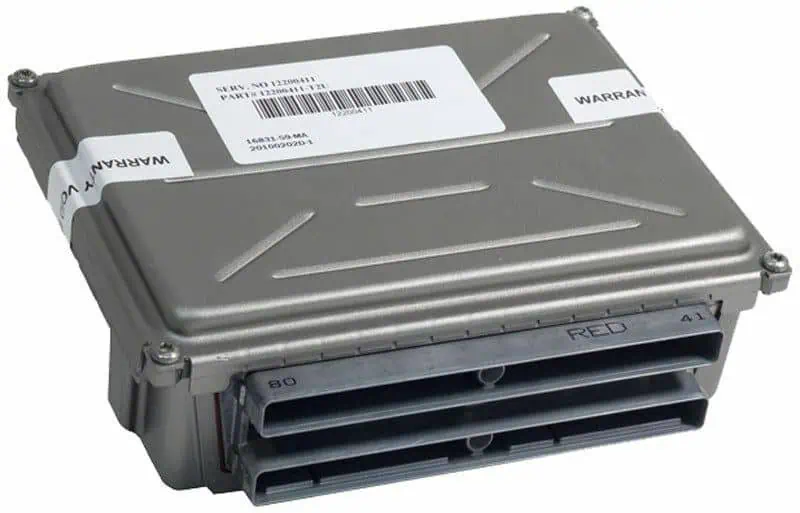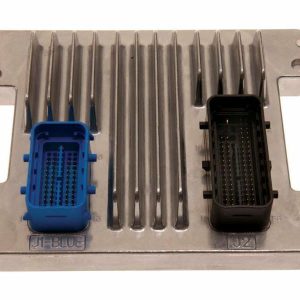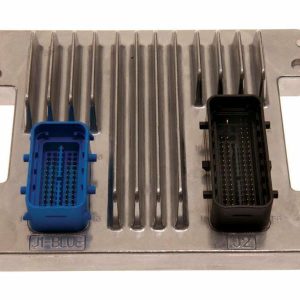Restore Your Truck’s Heartbeat and Your Peace of Mind
Is your trusty Suburban or Silverado suddenly acting erratically? Stalling at red lights, refusing to start, or flashing a stubborn check engine light can turn a dependable workhorse into a source of daily stress. The Powertrain Control Module (PCM) is the brain of your vehicle, and when it falters, the symptoms can be confusing and frustrating. This is more than just an inconvenience; it’s a matter of reliability. We provide a straightforward, effective solution: a replacement 2000 Suburban 1500 PCM, professionally programmed specifically for your vehicle’s VIN, ensuring a seamless restoration of performance and dependability.
Warning Signs and How to Overcome Them
A failing engine computer can mimic a dozen other problems. Here are the key indicators that point directly to the PCM, and the benefits you’ll experience with a properly programmed replacement:
- ✔ Eliminate No-Start Conditions: Regain the confidence that your truck will start every single time, whether you’re heading to work or towing the boat for a weekend getaway.
- ✔ Resolve Erratic Shifting: A new PCM restores crisp, correct communication with your transmission, putting an end to harsh or delayed gear changes.
- ✔ Clear Persistent DTCs: Finally solve stubborn diagnostic trouble codes, especially internal module errors like P0601, P0602, or P0606, and pass your emissions test with ease.
- ✔ Restore Lost Power & Fuel Economy: By correcting fuel mixture and ignition timing, this module brings back the smooth power and efficiency you expect from your GM V8.
- ✔ Fix Intermittent Stalling: Put an end to the nerve-wracking experience of your engine quitting unexpectedly in traffic. Drive with the security of a stable, reliable engine.
An Expert’s Note on Diagnostics
I’ve seen countless hours and dollars wasted chasing ghosts. A customer once replaced nearly every sensor on his Silverado—crank sensor, cam sensor, throttle position sensor—trying to fix an intermittent stall. The issue persisted because the root cause wasn’t a sensor providing bad data, but a PCM that couldn’t properly process the good data it was receiving. A quick module swap, programmed to his VIN, had him running perfectly in under an hour. Always consider the ‘brain’ when the symptoms are widespread and inconsistent.
Guided Installation for Your 2000 Suburban 1500 PCM
Replacing your engine computer is a surprisingly straightforward job. You don’t need a lift or complex tools—just a little patience and this guide. We’ve programmed the module, so the hard part is already done!
- Safety First: Begin by disconnecting the negative terminal on your vehicle’s battery. This is a critical step to prevent any electrical shorts.
- Locate the Module: On most of these GM trucks and SUVs, you’ll find the PCM located in the engine bay, on the driver’s side, often under or near the battery tray.
- Disconnect the Harnesses: The PCM will have several large multi-pin connectors. Each has a release lever or tab. Carefully disengage them and pull the connectors straight out. Avoid wiggling them, as this can damage the pins.
- Remove the Old Unit: Unbolt the mounting bracket holding the old PCM in place. Keep the hardware, as you’ll need it to install the new one.
- Install the New PCM: Mount your new, pre-programmed PCM using the original hardware. Ensure it’s secure.
- Reconnect and Secure: Firmly press the wiring harnesses into the new module until they click into place. Reconnect your battery’s negative terminal.
- Final Steps: Your vehicle may need to complete a security relearn procedure, which often involves turning the key to the ‘On’ position for 10-15 minutes. In many cases, it will start right up. Enjoy your smooth-running truck!
Tailored Fit for Your Ride
This module is a direct replacement for part numbers 9354896, 09354896, and 19109040. It is guaranteed to fit the following vehicles:
- 1999-2000 Chevrolet Corvette (5.7L)
- 1999-2002 Pontiac Firebird (5.7L)
- 1999-2002 Chevrolet Camaro (5.7L)
- 1999-2000 GMC Sierra 1500/2500 & Chevrolet Silverado 1500/2500 (V8)
- 2000 Chevrolet Tahoe & GMC Yukon (exc. Denali)
- 2000 Chevrolet Suburban 1500/2500 & GMC Yukon XL 1500/2500
After your purchase, simply provide us with your VIN. We’ll handle the programming with the latest GM software updates, ensuring it’s ready for installation the moment it arrives at your door. Get back on the road with confidence.
Frequently Asked Questions
Do I need to do anything after installing this PCM?
Because we program the module to your VIN, it is ready for installation upon arrival. In some cases, your vehicle will require a simple security relearn procedure, which typically involves cycling the ignition key. This process allows the new PCM to synchronize with your vehicle’s anti-theft system.
Will this fix my specific check engine light codes?
This PCM is a direct solution for internal module fault codes like P0601 through P0606. If your check engine light is caused by a faulty sensor or other component, you will still need to address that separate issue. However, a failing PCM can often cause false sensor codes, which will be resolved with this replacement.
Is this a plug-and-play part?
Yes! The term ‘plug-and-play’ means that no additional programming is required on your end. We handle all the flashing before we ship it. You simply install it, perform any necessary relearn procedure, and you’re ready to go.
Where do I find my VIN?
Your Vehicle Identification Number (VIN) is a 17-digit number typically found on a metal plate on the driver’s side dashboard (visible through the windshield), on the driver’s side door jamb sticker, or on your vehicle’s registration and insurance documents.
What makes your programming service different?
We use official GM-licensed software to flash your module with the latest updates available for your specific VIN. This ensures optimal performance, fuel efficiency, and compatibility, correcting many issues that were present even in the original factory software.
How can I be sure the 2000 Suburban 1500 PCM is my problem?
While definitive diagnosis can be complex, common pointers include multiple unrelated error codes, stalling when warm, and communication errors with scan tools. If you’ve checked major sensors and wiring, and the symptoms persist, the PCM is the most likely culprit.



